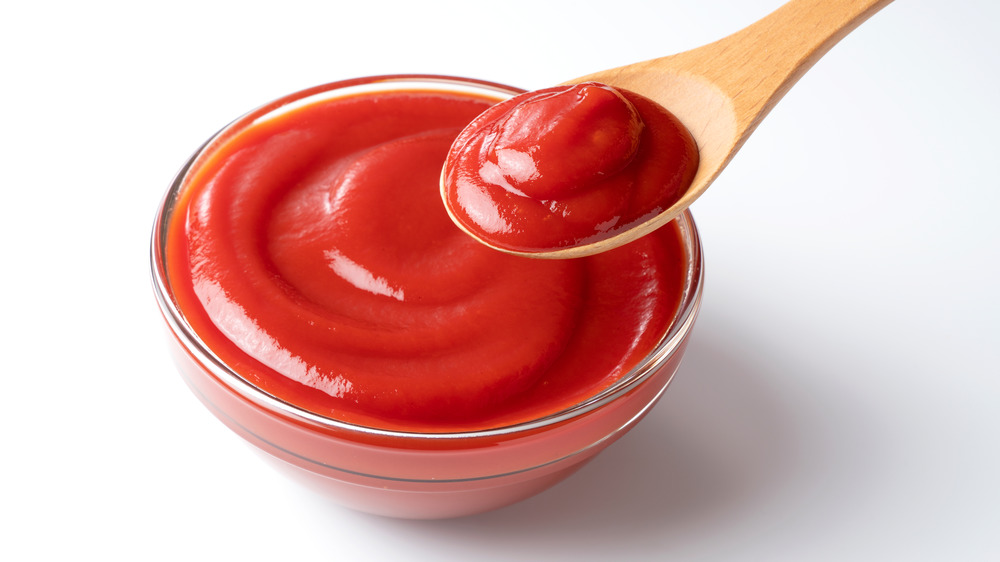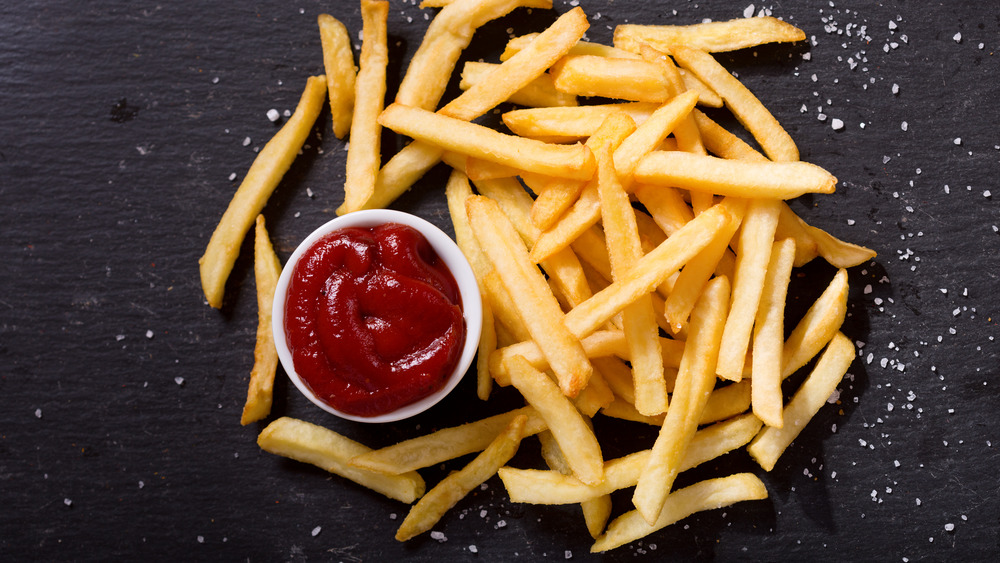Why You Should Avoid Freezing Ketchup
If you were to go into a random person's kitchen and open up their refrigerator, chances are you would find a bottle of ketchup. According to the Smithsonian Magazine, 97 percent of Americans keep a bottle on hand with Heinz being the most likely suspect. Makes sense to us. Ketchup is that condiment that you need for your hamburgers and French fries, your meatloaf, or your kid's chicken nuggets. It would be criminal not to have a bottle or two in your pantry.
It might surprise you to learn that ketchup has not always been the beautiful tangy, red, tomato sauce we've grown to love. Per Houstonian Magazine back in the day, ketchup was just a term to describe a "vinegary" sauce that could be made from walnuts, oysters, mussels, or even egg whites to name a few different ingredients. Today, ketchup is primarily made with tomatoes, vinegar, some type of sweetener, and maybe a few seasonings to make the flavor pop. It's easy to make your own and store in the fridge until you are ready to use. While ketchup is easy to freeze if you find you've made a bigger batch than you can get through or you've stumbled upon a sale on your favorite commercial brand, you should probably avoid freezing it and here's why.
Ketchup's consistency changes with freezing
Per the blog Can You Freeze This?, ketchup is actually very easy to freeze. Because it is a condiment containing a large amount of water — tomatoes are 95 percent H2O, according to Food Crumbles — it freezes like ice. However, that's not the issue with freezing ketchup. The issue is when it defrosts. Because of its watery nature, frozen ketchup can be thinner than its original consistency when you thaw it, which doesn't make for good fry or chicken nugget dipping. The site also notes that this condiment is susceptible to freezer burn, which will ruin the taste of your precious ketchup and all the time and care you took to freeze it in the first place will be for not. They also caution that if you just throw those unopened glass bottles of your favorite brand of ketchup in the freezer, they will probably explode and leave you with a festive frozen mess to clean up.
Yet, there is good news when it comes to ketchup. It has a long shelf life. Per Insider, if you keep your opened bottle of ketchup in the refrigerator, it will keep for up to six months. And Eat by Date shares that an unopened bottle of ketchup is good for anywhere from one to two years past its use by date due to its acidic nature, so you probably will not ever have to worry about freezing it in the first place.

